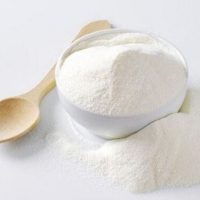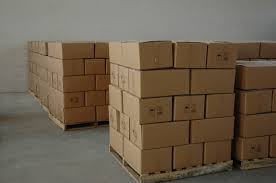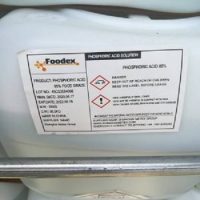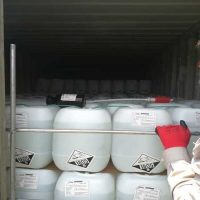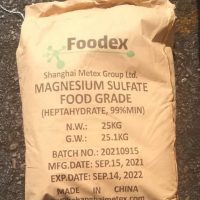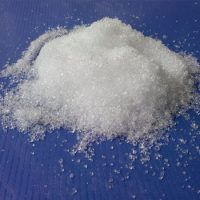Potassium Carbonate
- CAS Number: 584-08-7
- Appearance: solid
- Purity: %99
- Made in: China
- Phone Num: +86-2150591759
- E-Mail: info@shanghaimetex.com
- Description
- analysis
- review
Description
Potassium carbonate is an inorganic compound with the formula K2CO3. It is also known as potash, pearl ash, tartar salt, potash carbonate, and woodworm salt. Potassium carbonate was used as a dough-forming agent before the advent of baking powder. This substance has long been used to soften hard water. Today, this compound is also used to reduce the acidity of different types of foods as a food additive because by dissolving in water, it makes the solution highly alkaline.

Physical and Chemical Properties:
This delicate substance often appears as a moist solid. This substance has a salty taste. Its vapor pressure is very low and it decomposes at high temperatures. It can absorb moisture from the air, so it is moist and its dissolution process is also an exothermic process.
| Chemical formula | K2CO3 |
| Molar mass (g/mol) | 138.205 |
| Appearance | solid |
| odor | Odorless |
| taste | Alkaline taste |
| Density (g/cm3) | 2.29 |
| Melting Point (°C) | 891 (1,636 °F; 1,164 K) |
| Boiling point | Decomposes |
| PH (aqueous solution) | 11.6 |
| Solubility in water | Very soluble in water |
| Solubility | Insoluble in alcohol, acetone |
| Color | White or Colorless |
| Form | granular powder |
| Other names | Carbonate of potash, dipotassium carbonate, sub-carbonate of potash, pearl ash, potash, salt of tartar, salt of wormwood. |
| Chemical Structure Depiction |  |
Potassium Carbonate Production Process:
Potassium carbonate is the major component of potash and pearl ash or tartar coal salt. Historically, pearl ash was produced by kiln baking, which was the remaining white powder of pearl ash.
Today, this compound is produced industrially from the electrolysis of potassium chloride. So that first potassium chloride is converted to potassium hydroxide and then potassium carbonate is obtained by using carbon dioxide, which is often used to produce other compounds of potassium.
2 KOH + CO2 → K2CO3 + H2O
2 KHCO3 → K2CO3 + H2O + CO2
Applications and Uses of Potassium Carbonate:
- Potassium carbonate can be divided into heavy and light in terms of density and solubility. Sales of potassium carbonate are heavy for the production of glass, ceramics, and fertilizers, and light for production in the field of food, medicine, and chemicals.
- Potassium carbonate is an oral type, used to regulate food acidity.
- The raw material is ceramic production. The purpose of purchasing potassium carbonate and using it in the production of ceramics is to reduce the melting temperature and increase the coefficient of expansion when baking ceramics.
- More than 44% of the potassium carbonate produced is used to make glass because it provides transparency, electrical resistance, and impact resistance. Potassium carbonate is a major component in the production of television glass, laboratory glass, and optical glass.

- This substance is used to soften soap with sodium bases.
- In the textile industry, potassium is purchased to bleach clothes and leather products, and dye wool.
- It also plays an important role in the production of pigments and ink printing.
- Used in the manufacture of glasses for television, optical lenses, and cathode-ray tubes.
- Potassium carbonate is used for better plant growth, water absorption, softening of the soil, and keeping it moist.
Potassium Carbonate in Production of Agricultural Fertilizers:
The element potassium with the chemical symbol (K) is one of the 17 essential substances for plant growth and reproduction, which is used as fertilizer to supply potassium to plants. This substance strengthens the roots and stems of plants and leads to improved plant growth and soil water retention.

Potassium Carbonate in the Food Industry:
Potassium required for animal feed can be obtained from potassium carbonate. Oral potassium carbonate is also used to produce raisins. One of the important applications of this product in the food industry is to dry grapes and turn them into raisins. Potash carbonate loosens grape skins and accelerates the evaporation of water from them, so grapes turn into raisins in less time. In addition to grapes, this substance can be used to dry other fruits.
Safety Information:
This chemical, in dry or soluble form, irritates the eyes, skin, and respiratory system and can cause inflammation of the skin, eyes, throat, and stomach. The effect of potassium carbonate is due to its caustic properties in a water-soluble state, which is also absorbed by moist tissues in the body. This substance is highly alkaline or alkaline and causes irritation or corrosion of living tissues.
Packing and Storage:
Store in a cool, dry, well-ventilated area in airtight containers. Store away from incompatible materials
analysis




